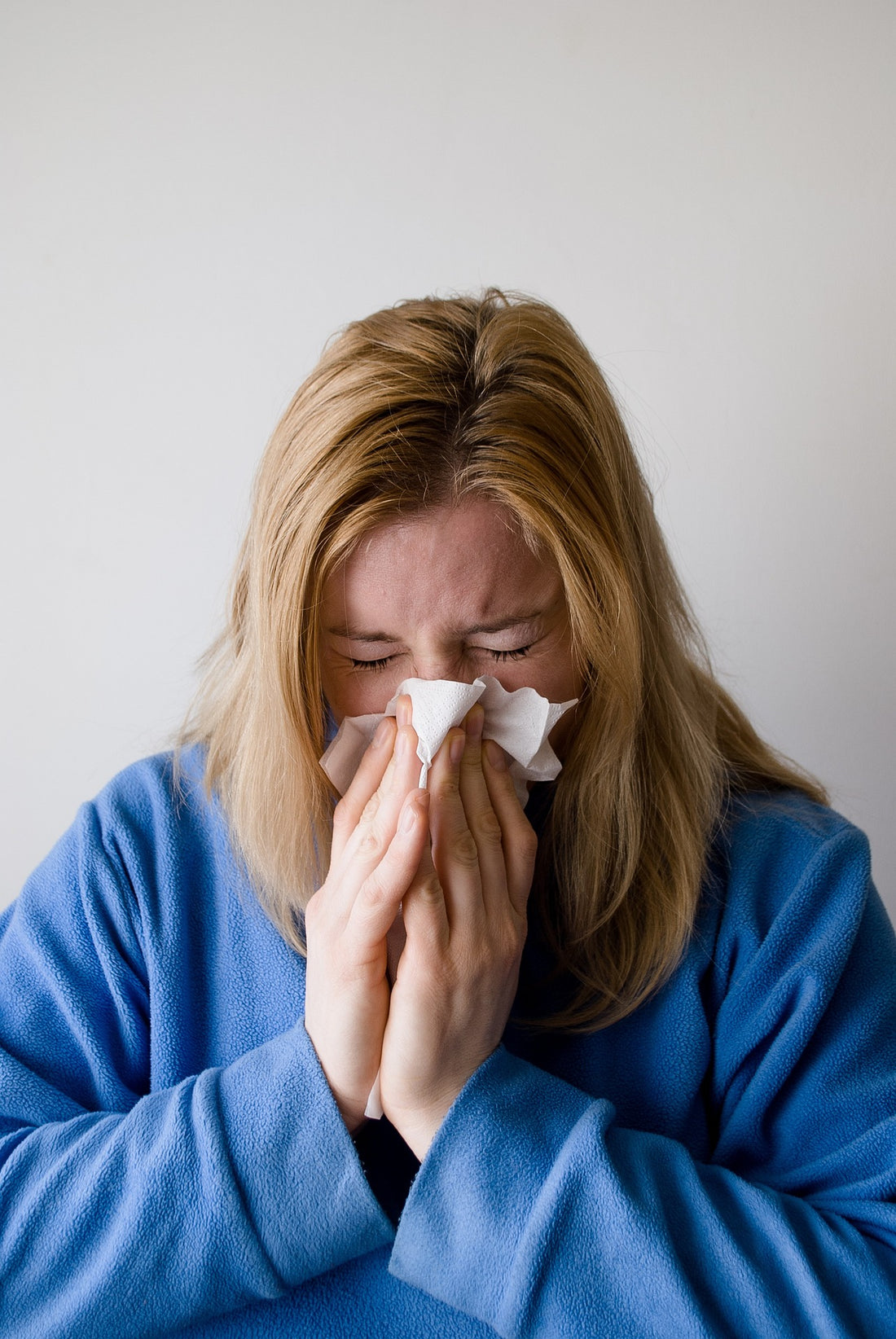
Flu Treatment At Home
Flu Treatment At Home
The flu, or influenza, is a highly contagious respiratory illness caused by the flu virus. It can range in severity from a mild cold to a severe illness requiring hospitalization. While the flu is usually not a serious threat to healthy individuals, it can be more dangerous for certain groups, such as young children, the elderly, pregnant women, and people with compromised immune systems. If you or a loved one is experiencing flu symptoms, it is important to take steps to recover and reduce the risk of complications. Here are some tips for treating the flu at home:
-
-
Rest and relaxation: Getting plenty of rest is essential for your body to heal. Try to get as much sleep as you need and avoid overexerting yourself. If you are unable to sleep due to congestion or coughing, try using a decongestant or taking a hot shower before bed to help alleviate these symptoms. I love to use VapoShower Plus. It may also be helpful to create a comfortable sleep environment by keeping the room cool, dark, and quiet, and using a comfortable pillow and mattress. Pro tip: snuggling up with your favorite blanket and streaming a marathon of your favorite show can work wonders for your recovery.
-
Fluids: It is important to stay hydrated when you have the flu. Water, broth-based soups, and electrolyte drinks can help to keep you hydrated and loosen congestion. Aim to drink at least 8-10 cups of fluids per day. Avoid caffeine and alcohol, as they can dehydrate you. And if you're feeling really adventurous, try making your own electrolyte drink by mixing together water, lemon juice, salt, and a little bit of sugar.
-
Pain relievers: Over-the-counter pain relievers such as acetaminophen (Tylenol) and ibuprofen (Advil) can help to reduce fever and alleviate muscle aches and pains. Follow the instructions on the label and do not exceed the recommended dosage. Aspirin should not be given to children or teenagers with the flu, as it has been associated with a rare but serious condition called Reye's syndrome.
-
Decongestants and nasal sprays: If you are experiencing a stuffy nose, decongestants and nasal sprays can help to reduce congestion. These products are available over-the-counter, but it is important to follow the instructions on the label and not use them for more than a few days at a time. Prolonged use of decongestants can actually lead to increased congestion. Nasal sprays should be used according to the instructions on the label, as overuse can lead to a "rebound" effect where the nasal passages become even more congested.
-
Humidity: Dry air can make congestion worse. Using a humidifier or taking a hot shower can help to add moisture to the air and alleviate congestion. Be sure to clean and maintain your humidifier according to the manufacturer's instructions to prevent the growth of bacteria and mold. (yeah that's gross)
-
Gargle with salt water: Gargling with warm salt water can help to reduce soreness and irritation in the throat. Mix 1/4 teaspoon of salt in a cup of warm water and gargle several times a day. I don't love gargling with salt water but it's proven helpful.
-
Chicken soup: Chicken soup has been shown to have some medicinal properties that can help to alleviate the symptoms of the flu. It can help to reduce inflammation, loosen congestion, and soothe a sore throat. Homemade chicken soup is best, but canned or boxed varieties can also be effective. Homemade chicken soup can be as simple as throwing ingredients in a crockpot.
-
If your symptoms are severe or you are experiencing difficulty breathing, call your healthcare provider for further guidance. It is also important to practice good hygiene, such as washing your hands frequently and covering your mouth and nose when you cough or sneeze, to prevent the spread of the flu to others.
